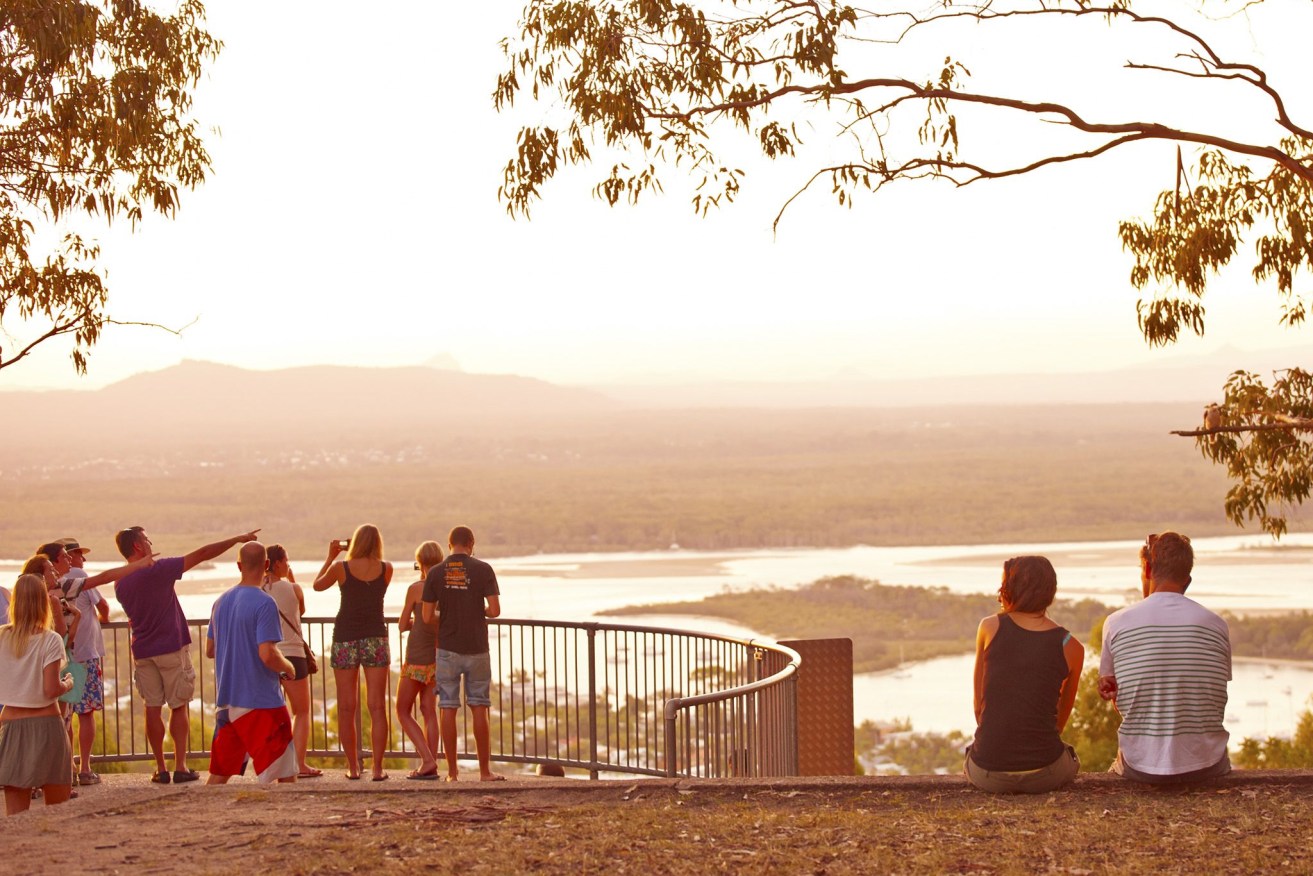Do you love the great outdoors? Experts say it’s probably in your genes
It’s possible to genetically inherit a love of nature which explains why some people gravitate outdoors more than others, a new study shows.

Laguna Lookout in Noosa National Park is one of the most popular, and accessible spots for bush lovers. (Source: Tourism and Events Queensland)
The findings, published in the peer-reviewed journal PLOS Biology, confirms the long-standing biophilia hypothesis that humans have an innate tendency to seek out connections with the natural environment.
The late American biologist Edward Osborne Wilson popularised the theory in his 1984 book, Biophilia, which explored how that tendency might in fact be a biologically-based need.
It turns out he was right. But in a cruel twist, the biologist – often likened to a modern-day Charles Darwin – died six weeks ago, before scientists could tell him.
University of Queensland Professor Richard Fuller was part of a research team that used more than 1000 sets of twins to find out how genetics might influence the relationships people have with nature.
“We compared twins who had been raised together with twins raised apart, in an attempt to demonstrate genetic heritability of two traits: how strongly they feel connected to nature and the amount of time a person spends in nature,” he says.
“We were truly surprised by what we found. Depending on which characteristic you look at, these ‘nature-loving’ behaviours were heritable between 34 and 48 per cent of the time.
“Our results help to explain why some people have a stronger desire than others to be in nature.”
Prof Fuller says while it would have been nice to validate Wilson’s theory before he died, he believes the biologist already knew his hypothesis was correct.
The study also involved collaborators at the National University of Singapore.
While the study showed a significant role for genetics, it maintained that environmental factors were the predominant influencer of a person’s connection to nature.
“That may be your circle of friends or family, it may be what you were used to doing as you grew up, what books you read, or what TV programs you watched that may be the reason some people get more into nature than others do,” Prof Fuller says.
“It means we have a lot of scope for changing or increasing that connection – there’s thousands of studies that show spending time in nature is good for our health and wellbeing.
“There is a genetic basis that supports the idea that there’s that innate connection to nature, but also a lot of it is under our own control, and we can really increase that and harness those benefits.”
In 2018, Prof Fuller was part of a study that showed a reduction in nature experiences in urban environments is a key risk factor for mental health issues and is associated with an increased risk of anxiety and depression.
“More than half of the world’s population lives in urban areas and obviously cities are places where nature has largely been replaced by built infrastructure,” he says.
“That’s had some pretty big impacts in particular on mental health. Spending time in nature is a good way of counteracting some of the ills of city living.”












